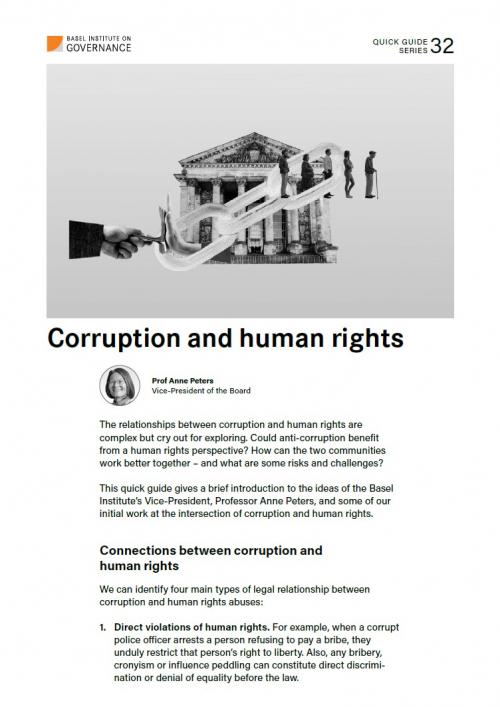FCPA Blog: Are companies and executives responsible for human rights violations abroad?

This blog was originally published on the FCPA Blog, which was discontinued in February 2024.
What is the responsibility and possible criminal liability of companies and their officials relating to human right violations allegedly committed abroad?
Should a CEO for example step down when a violation of financial or other conduct rules has occurred, which may even make the corporation complicit in terrorism financing or war crimes? Or should prosecution be a consequence of such transgression?
Whose conduct triggers a reaction by prosecution services: Acts by all persons associated with a company’s foreign subsidiaries, only subcontractors, also suppliers?
In several countries the controversial debate about corporation liability for violations of human rights abroad is fuelled either by legislative initiatives (e.g. the Responsible Business Initiative), or pending court decisions (as in the U.S.) or new laws (Australia).
Public concern about the accountability of corporations and their managers has given rise to such initiatives aimed at holding corporate actors accountable for certain rights violations of subsidiaries in their business activities.
At the international level, the UN Human Rights Council adopted the Guiding Principles on Business and Human Rights (UNHRC 17/4 of 16 June 2011, so-called Ruggie Principles).
The 2014/95/EU Accounting Directive establishes reporting requirements on human rights compliance, with some members of the EU Parliament pushing for further reform with regard to criminal liability.
The Swiss Responsible Business Initiative, signed by the end of 2016 by 120,000 Swiss citizens, launches a far-reaching attempt to implement the Ruggie Principles into Swiss law, but clearly keeps criminal law out of the picture. Other countries consider criminal prosecution — and NGOs target such remedies.
A global movement towards the expansion of corporate criminal liability law is thus not uni-directional. The challenge of making good in cases of human rights violations is of particular relevance for states that are hubs for multinational corporations operating in “high-risk” areas of commerce and jurisdictions.
New business and human rights frameworks present lawyers in practice with a new range of crucial questions, not only about where and when and for what type of wrongdoing a company or its managers may be brought to court, but also about a sustainable strategy to avoid human rights violations abroad.
For academics and activists, there are related concerns about the credibility of threats to charge entrepreneurs with overseas misconduct and the effectiveness of such reform in the light of the goals of the Ruggie Principles and the overall objectives of corporate law.
If you’re interested in further exploring this topic, join the International Association of Penal Law (IAPL) and the University of Basel for an international colloquium on Prosecuting Companies for Human Rights Violations Abroad? The Jurisdictional Issues (June 2, 2017, Basel, Switzerland).
Speakers and panelists include:
Mark Pieth, University of Basel / President Basel Institute on Governance, Switzerland
Radha Ivory, University of Queensland, Australia
Sara Beale, Duke University, U.S.A.
Cedric Ryngaert, Utrecht University, Netherlands
Kenneth Gallant, University of Arkansas at Little Rock, U.S.A.
Mirna Adjami, Basel Institute on Governance
Felix Ehrat, Novartis, Switzerland
Flavio Noto, Staatsanwaltschaft Basel-Stadt, Switzerland
Urs Rybi, Public Eye Switzerland
For more information or to register, please contact Claudine.abt@unibas.ch.




